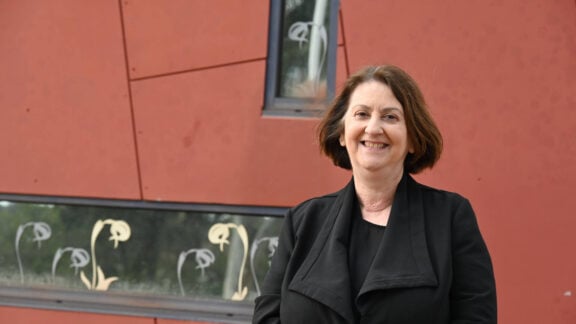Households are getting their budgets under control as they continue to find more ways to cut spending so they can pay their mortgages, National Australia Bank says.
While many have increased working hours or taken on a second job to meet their repayments in an environment of rising interest rates, some have concluded that’s not enough and are cutting deep into their spending.
“Forty per cent of our customers are actually doing a budget for the first time in their lives,” NAB CEO Ross McEwan told reporters in a conference call on Thursday.
“What that shows is people are serious about controlling their spend and want to be, I think, serious about how they look after their money.
“And that is a great thing to choose, to have that resilience, people are making good decisions.”
Mr McEwen some of the areas where people were cutting back includes eating out, entertainment, car travel (due to the high cost of petrol) and clothing.
At the same time, the Big Four bank boss said that still-high inflation must be pulled back because it affects all households.
NAB believes the central bank is nearing the top of its current monetary policy tightening cycle.
The Reserve Bank of Australia has raised the key cash interest rate 13 times since May last year to try to tamp down high inflation, which is running at around 5.4 per cent and well ahead of its two to three per cent target range.
NAB economists think there will be one more hike, likely in February next year, to 4.6 per cent although they admit December is a “live” possibility after the RBA raised the cash rate to 4.35 per cent this week.
NAB on Thursday reported cash earnings of $7.7 billion for the 2023 fiscal year, up 8.8 per cent from the year before. Its annual statutory net profit rose 7.6 per cent to $7.4b.
Mr McEwan said the operating environment had been challenging for NAB and was likely to remain so for the next six months as customers continue to look for the best deals.
The bank was seeing “some of the thinnest mortgage margins I’ve seen in my time in Australian banking”.
NAB’s full-year results again reflect the profitability of its key business and private banking arm, which delivered a 10 per cent rise in earnings to $3.3b.
Earnings at its personal banking arm, which covers its home lending business, fell just over nine per cent to $1.4b.
However, NAB said housing loans in arrears, as well as its loss rate, remain well below one per cent.
It has taken possession of 151 properties – which is in line with what it was seeing in March 2022, before interest rates started rising.
“So, whilst rates are going up and people are having to pay more for their mortgages they are still in a position to pay, which is great,” Mr McEwan said.
“House prices are going up, which helps them, and so if they do need to sell, it’s a good market to be doing so.”
Still, Mr McEwen doesn’t see NAB pushing for more share of the mortgage market.
“We have a very large business bank and corporate bank. We see very big opportunities for continued growth in the marketplace,” he added.
Neither does Mr McEwan see Australia going into recession, even though the economy is growing at a slower pace.
“I’m optimistic … Australia is well placed to rebound in the second half of next year,” he said.
“Businesses talking to us are still ambitious to grow, they’re looking to invest … and they want banks and governments to keep making things simpler and easier for them so that they can just get on with the job.”
NAB shareholders will be paid a final dividend of 84 cents per share, taking the total for the year to $1.67.
Source: AAP









